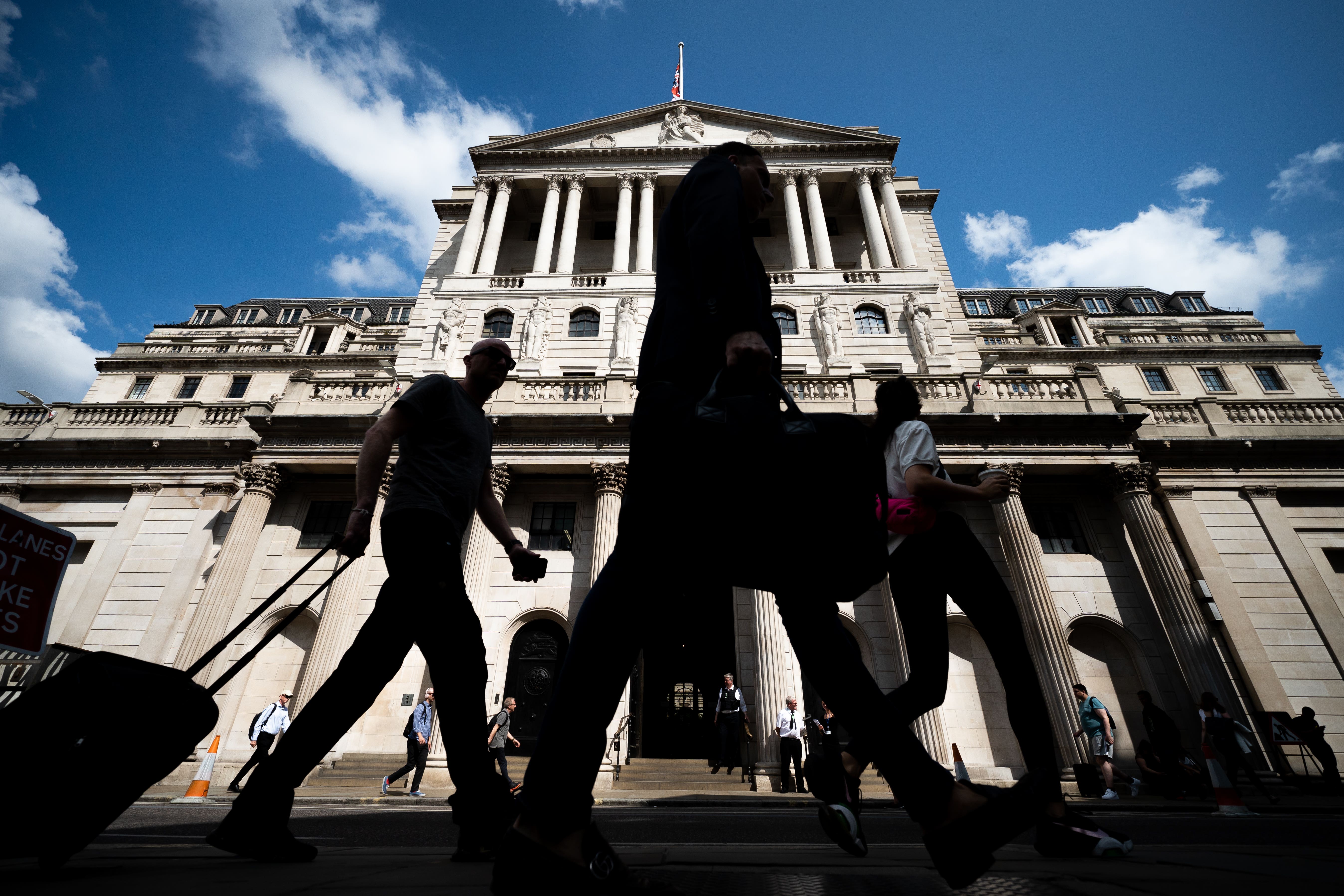Bank of England poised to hold interest rates at 5%, economists say
Most economists think that rate-setters on the Monetary Policy Committee will keep the UK interest rate on hold on Thursday.

Your support helps us to tell the story
From reproductive rights to climate change to Big Tech, The Independent is on the ground when the story is developing. Whether it's investigating the financials of Elon Musk's pro-Trump PAC or producing our latest documentary, 'The A Word', which shines a light on the American women fighting for reproductive rights, we know how important it is to parse out the facts from the messaging.
At such a critical moment in US history, we need reporters on the ground. Your donation allows us to keep sending journalists to speak to both sides of the story.
The Independent is trusted by Americans across the entire political spectrum. And unlike many other quality news outlets, we choose not to lock Americans out of our reporting and analysis with paywalls. We believe quality journalism should be available to everyone, paid for by those who can afford it.
Your support makes all the difference.The Bank of England is poised to keep interest rates at 5% after sending a “clear message” that it would not move too quickly to cut borrowing costs.
Most economists think that rate-setters on the Monetary Policy Committee (MPC) will keep the UK interest rate on hold on Thursday.
This would keep the Bank’s base rate – which affects interest rates on borrowing and saving – at the highest level since 2008, during the global financial crisis.
The central bank cut rates from 5.25% in August, implementing the first reduction since 2020 and delivering good news to squeezed borrowers across the country.
Governor Andrew Bailey said it was able to do so because inflationary pressures had “eased enough”.
However, he stressed that policymakers “need to be careful not to cut interest rates too quickly or by too much”.
Matt Swannell, chief economic adviser at the EY Item Club, said the MPC “sent a clear message that back-to-back rate cuts were unlikely” unless subsequent economic data was weaker than expected.
He said the latest official data, which showed Consumer Prices Index (CPI) inflation remained at 2.2% in August, would not be enough to prompt the Bank to start cutting rates more quickly.
Sanjay Raja, chief UK economist for Deutsche Bank, agreed that the inflation figures “won’t be enough to trigger a surprise rate cut” on Thursday.
“Instead, the MPC will likely take this as a positive sign that underlying price pressures are easing, and could warrant a further dial down of restrictive policy in November, when it conducts its next forecast update,” he said.
“The MPC will also have more information on the fiscal outlook, with the autumn Budget slated for October 30.”
Rob Wood, chief UK economist for Pantheon Macroeconomics, agreed that August’s inflation reading “gives the MPC little reason to rush to cut interest rates again”, with the data staying close to its expectations.
He said another month of slowing prices in the services sector, which is watched closely by the Bank, would give rate-setters more “comfort”.
Meanwhile, the Bank of England could take note of the European Central Bank (ECB) decision to cut interest rates in the Eurozone last week, the second reduction in a row.
The ECB’s rate-setting council lowered the main deposit rate from 3.75% to 3.5% at the meeting.
Elsewhere, the US’s Federal Reserve could implement its first cut to the nation’s interest rates on Wednesday evening.